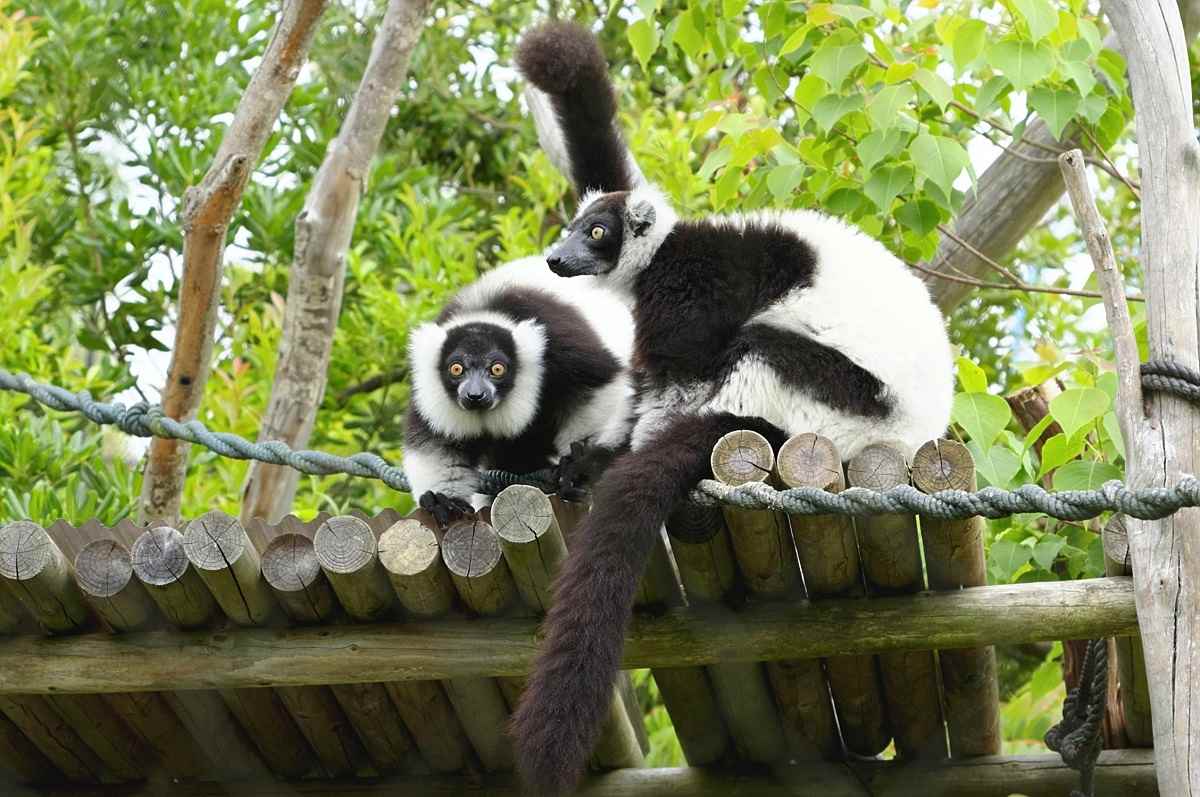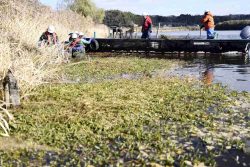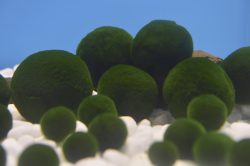Japan Zoos Set Up Endangered Species ‘Gamete Banks’; Effort May Help Future Breeding of Lemurs, Tigers

Yoshitaka Kimura of Tokiwa Zoo in Ube, Yamaguchi Prefecture, checks the condition of cryopreserved sperm.
10:59 JST, May 23, 2024
The introduction of a “gamete bank” system to preserve the frozen sperm and eggs of rare animals is progressing in earnest at zoos and similar facilities with the aim of continuing to breed endangered species in the future. Nine facilities in various regions of Japan have already set up such banks.
The veterinary hospital at the Tokiwa Zoo in Ube, Yamaguchi Prefecture, has a tank filled with liquid nitrogen at minus 196 C, in which sperm collected from ruffed lemurs, a rare species bred at the zoo, is kept frozen using a technique called cryopreservation.
In October, in conjunction with hiring an expert employee, the zoo signed a memorandum of understanding with the Japanese Association of Zoos and Aquariums (JAZA), a Tokyo-based public interest incorporated association that aims to promote gamete banks. The sperm in the tank was collected at the zoo in January, as the first batch.
Zoo employee Yoshitaka Kimura, 48, who is in charge of the bank, said: “It is difficult to raise a large number of individuals as our zoo area is so small. With the bank, we can contribute to the conservation of rare species.”
The system involves removing gametes from the testes and ovaries of live and dead animals, placing them in containers, and storing them in tanks of liquid nitrogen. Theoretically, they can be stored almost perpetually.
JAZA has about 140 member zoos and aquariums in Japan. The organization aims to preserve sperm and eggs of rare species for use in artificial insemination research and eventually their breeding.
The collection and preservation of gametes has been promoted since the 1990s, led by Hiroshi Kusunoki, who was an associate professor of conservation breeding at Kobe University.
In 2013, to hedge against the risk of damage and loss in disasters, JAZA and other organizations moved some of the gametes stored at the university’s laboratory to other locations for ongoing storage. After Kusunoki’s death in 2016, JAZA obtained the remaining gametes from the laboratory, while having requested that facilities around Japan establish gamete banks.

Ruffed lemurs
Expertise required
Collecting gametes requires advanced knowledge and skills. Among JAZA’s member facilities, only a center for wildlife conservation in Hino, Tokyo, and the Yokohama Preservation and Research Center in Yokohama were up to the task.
As gametes deteriorate after an animal’s death, they need to be collected and stored appropriately for preservation as early as possible. However, it takes several days to send removed testes and ovaries from some areas of the nation to either of the two facilities in eastern Japan, and JAZA had asked facilities in western Japan to join the efforts.
In response, Tokiwa Zoo in Ube and Osaka Tennoji Zoo in Osaka agreed.
Osaka Tennoji Zoo decided in November to establish a gamete bank and is now purchasing equipment and making other preparations to begin gamete preservation within this year. It plans to collect the gametes in the future.
The existing banks set up at zoos and other facilities in various regions have stored the gametes of about 120 species, including endangered Amur tigers, Sumatran tigers and chimpanzees.
Serious efforts to establish gamete banks have been prompted by a sense of crisis that rare species that are native to other parts of the world may no longer exist at institutions in Japan in the future.
The Washington Convention, which regulates international trade in wild animals, was adopted in 1973 and ratified by Japan in 1980. Under the convention, importing animals has become more difficult in recent years from the perspective of animal welfare, with requirements to keep animals in a comfortable environment. There is also concern about preventing the spread of infectious diseases.
To increase the number of gamete banks, JAZA is paying the entire cost of refilling 20-liter liquid nitrogen tanks, at about ¥10,000 per refill, on behalf of facilities. It is also considering holding training sessions to impart the knowledge necessary for collecting and preserving gametes.
Top Articles in Science & Nature
-

Japan Institute to Use Domestic Commercial Optical Lattice Clock to Set Japan Standard Time
-

Japan to Face Shortfall of 3.39 Million Workers in AI, Robotics in 2040; Clerical Workers Seen to Be in Surplus
-

Record 700 Startups to Gather at SusHi Tech Tokyo in April; Event Will Center on Themes Like Artificial Intelligence and Robotics
-

iPS Treatments Pass Key Milestone, but Broader Applications Far from Guaranteed
-

iPS Cell Products for Parkinson’s, Heart Disease OK’d for Commercialization by Japan Health Ministry Panel
JN ACCESS RANKING
-

Japan PM Takaichi’s Cabinet Resigns en Masse
-

Japan Institute to Use Domestic Commercial Optical Lattice Clock to Set Japan Standard Time
-

Israeli Ambassador to Japan Speaks about Japan’s Role in the Reconstruction of Gaza
-

Man Infected with Measles Reportedly Dined at Restaurant in Tokyo Station
-

Videos Plagiarized, Reposted with False Subtitles Claiming ‘Ryukyu Belongs to China’; Anti-China False Information Also Posted in Japan























